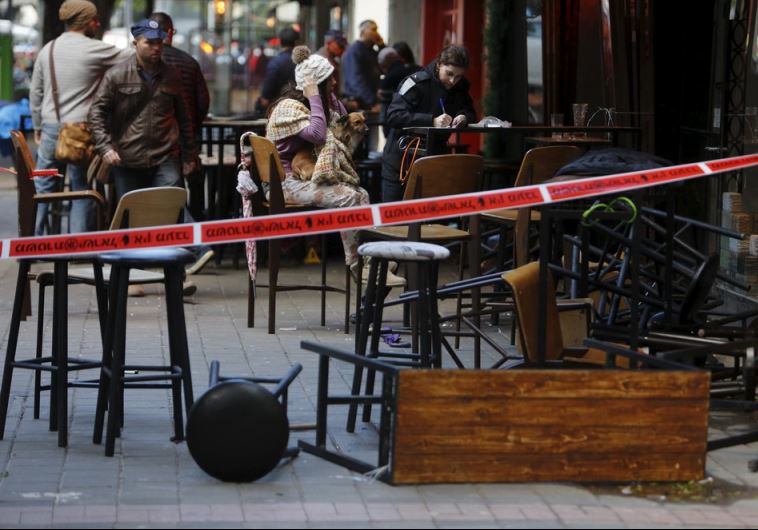Dizengoff store-owners see business getting back to normal — as long as it doesn’t rain
The shattered windows are already being replaced, the restaurants tables are set, and the shop doors are open.
 A woman sits with her dog after being questioned by police at the scene of a shooting incident in Tel AvivUpdated:
A woman sits with her dog after being questioned by police at the scene of a shooting incident in Tel AvivUpdated: